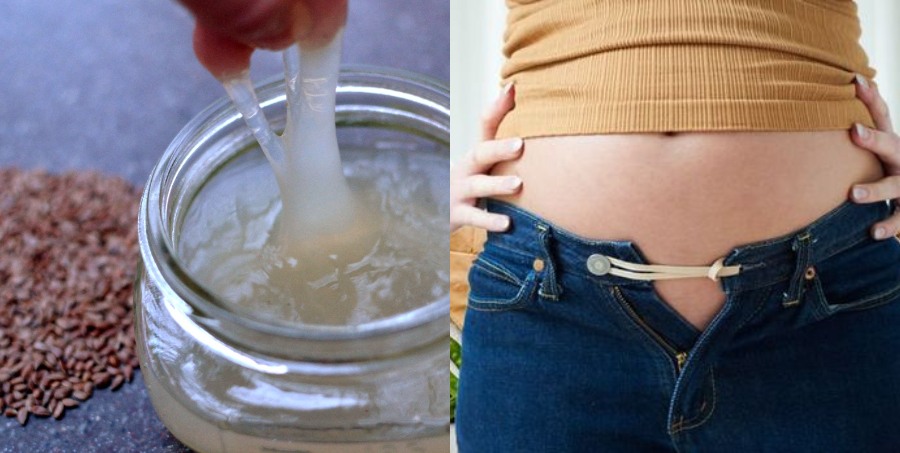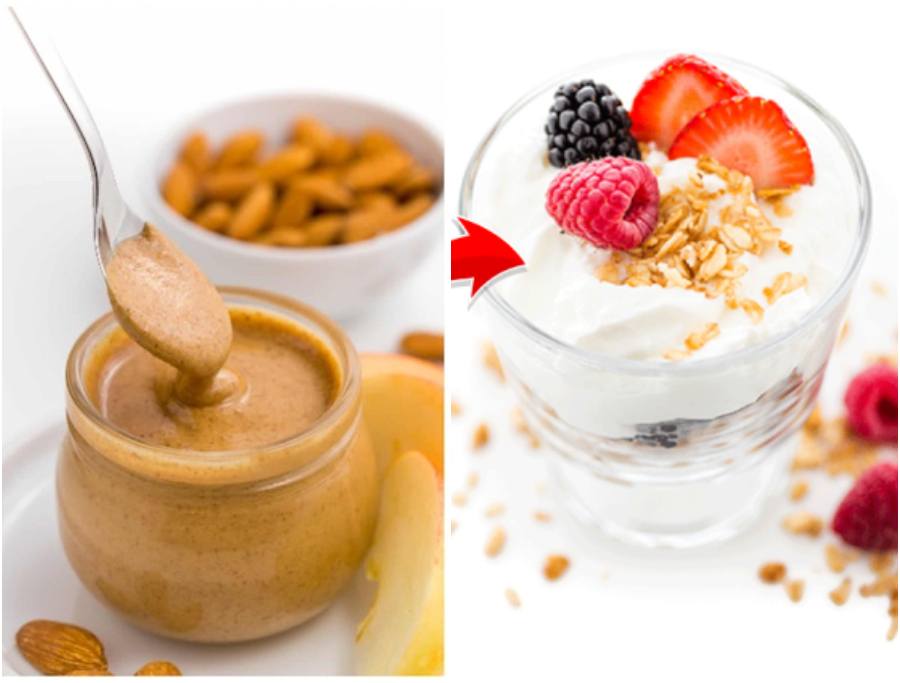Here’s an interesting fact about our body that you might have never heard from anyone before – our gut is called as the “second brain” of the body because there are 100 million neurons in our gut and they are linked directly to the brain. Therefore, maintaining a healthy gut is of supreme importance because an unhealthy gut can lower immunity, increase weight, cause hormonal imbalances, affect mental health, cause endocrine and metabolic disorders, also can cause cancer. So, you better start thinking about ways to keep your gut healthy, at the same level that you think about brain health. People often do not pay much importance to the digestive system – assuming it’s only role is to digest food and provide energy. But studies have revealed that your gut runs a majority of functions, from absorbing nutrients from the food you consume, to keep the immunity high, to fight infections, prevent weight gain, and even combat depression. But did you know the key to a healthy gut lies in the well being of its microbial flora, now let’s get into the details of how to improve gut health.


What is Gut Flora?
There are a number of friendly microorganisms which reside in the gut. These microbes are essential to run the bodily functions smoothly. A healthy human body has about 500 to 1000 different species of bacteria in their digestive tract or gut. Add to this more fungi and viral colonies – together their count comes up to trillions. Collectively, they constitute the gut flora or microbiome. Comparatively, bacterial species are more beneficial to the body because these bacterial colonies which run up to 40 trillion cells are necessary for the human body to run smoothly and that’s the reason they are called “friendly bacteria.”
Types of Friendly Bacteria that Live in the Gut:
There are around trillions of friendly bacteria residing in our gut and some not-so-friendly ones, but what matters and counts are the good ones:

These are some of the good bacteria:
1. Lactobacillus – Lactobacillus acidophilus, Lactobacillus casei, Lactobacillus rhamnosus, Lactobacillus fermentum, Lactobacillus delbrueckii bulgaricus, Lactobacillus plantarum, Lactobacillus reuteri, Lactobacillus brewis, Lactobacillus cellobiose.
2. Bifidobacterium – Bifidobacterium thermophilus, Bifidobacterium infantis, Bifidobacterium bifidum, Bifidobacterium animalis, Bifidus Actiregularis, Bifidobacterium longum
3. Propionibacteria.
4. Streptococcus – Streptococcus thermophilus, Streptococcus lactis, Streptococcus cremoris, Streptococcus salivarius.
5. Lactococcus – Lactococcus lactis
6. Leuconostoc – Leuconostoc mesenteroides
7. Enterobacter – Enterobacter faecium, Enterobacter faecalis
8. Bacillus – Bacillus coagulans
9. Pediococcus – Pediococcus acidilactici
How Do you Know the Gut is not Functioning Normally?
1. Frequent diarrhea.
2. Constipation.
3. Sugar cravings.
4. Weight gain.
5. Fatigue.
6. Autoimmune disorders:
7. Frequent cramping/bloating/abdominal pain:
What are the Functions of Gut?
Our gut is home to more than 100 trillion microorganisms and they help the human body to function efficiently by boosting immune system, by keeping the digestive system robust, along with regulating blood pressure and keeping heart in good condition. A disruption in this microbial flora or replacement of good bacteria with bad ones can disrupt normal functioning of the body, leading to infections and diseases. It’s kind of impossible for anyone to survive without the presence of gut microbiome because a healthy gut runs the main show in human body.
1. Lactobacilli bacterial species promote HDL cholesterol and lowers bad cholesterol levels.
2. Improves brain health by helping produce chemicals in the brain. Serotonin which is an anti-depressant neurotransmitter is made majorly in the gut. As mentioned above, the gut is directly linked to the brain with millions of neurons.
3. Boosts Immunity/Fights Infections: The healthy bacteria that reside in your intestines help to fight pathogens and unhealthy bacteria. Taking prebiotics and probiotics will help maintain the healthy bacteria in your gut. Yogurt, curd, and fermented foods help to maintain the perfect balance of gut. Whole grains provide the necessary prebiotics. A healthy gut flora will improve your immunity and keep harmful pathogens away.
What Role Does Probiotic and Prebiotic Food Have in a Healthy Gut:
Probiotics are good and friendly bacteria that reside in the small intestine and colon in the human body. These colonies of friendly bacteria extract nutrients from the digested food and release it into the blood when it reaches the intestine. When the good bacterial flora is disrupted with the invasion of bad bacteria, it creates an imbalance and nutrients and vitamins are not efficiently extracted from the food. This disruption in the digestive system is called as “dysbiosis,” which is an imbalance microbial ecosystem in the intestine. This dysbiosis is linked to weight gain and obesity. When friendly bacteria in the gut maintain the digestive system, weight loss.
List of Probiotic Food Items:
- Yogurt/curd
- Kefir
- Oats
- Banana
- Berries
- Garlic
- Quinoa
- Fermented food (idli, dosa)
- Kimchi
List of Prebiotics of Food Items:
- Raw garlic
- Leeks
- Onions
- Kale
- Cucumbers
- Sweet potatoes
- Cabbage
- Tomatoes
- Apples
- Banana
- Mangoes
- Honey
- Dark chocolate
- Flax seeds
- Pumpkin seeds
- Chia seeds
- Quinoa
Some Unusual Gut-Friendly Food Items that you Should Include in your Diet:
- Yogurt/curd – Contains lot of probiotic cultures that increase the count of microbial flora in the gut.
- Green bananas – Increase the production of short-chain fatty acids which are good for maintaining a healthy gut.
- Dark Chocolate – Rich in iron, copper, magnesium, flavonoids, zinc, phosphorus, dark chocolate also reduces inflammation in the body.
- Kimchi – It is made by fermenting veggies with lactic acid bacteria and is loaded with vitamins, minerals and antioxidants. And if this wasn’t enough to tempt you, research has shown that kimchi helps fight cancer, obesity and constipation. It also lowers cholesterol, boosts brain and immune functions, and slows down ageing
- Garlic – It has immunity-boosting properties and serves as a fuel for the gut flora.
- Kefir – To make kefir, milk is fermented with yeast and bacteria yielding a miracle drink loaded with probiotics. From gastrointestinal health to allergies, kefir might be your one-stop solution for ultimate digestive health.
- Sauerkraut – A mixture of cabbage and carrots fermented in brine and high in fermented products. Another food to satiate your tummy and boost your gut microbes. In fact, sauerkraut consumption can reduce anxiety as more the gut bacteria, more serotonin production, resulting in lesser anxiety and depression pangs.
15 Ways to Improve Gut Health:
1. Eat Fermented Food: There are many examples of fermented food in Indian cuisine – some most common ones are, idli, dosa, dhokla, curd, appam, chakulipitha, etc. Fermented food is essential for a healthy gut because it is full of probiotic bacteria and by taking fermented food, you are adding healthy bacteria and enzymes to your gut flora, increasing its count, and helping the smooth functioning of digestive system. Another good reason to add idli/dosa to your daily diet 😛
2. Eat Fibre-Rich Food: Fiber is a category of nutrients that does not break up into sugar molecules, pass down the gut unbroken, and act as fuel for the healthy bacteria in the gut. Healthy bacterial colonies are essential to maintain a healthy gut for better absorption of nutrients and vitamins into the body. Fiber is an essential part of a healthy diet because it helps to maintain a healthy digestive system, clears constipation, regulate blood sugar levels, and also to control appetite. Fiber helps to reduce appetite, reduces belly fat, and thus helps with weight loss too. Fiber helps to treat constipation and other digestive system related issues. Most importantly, fiber reduces the risk of colon cancer. Some popular examples of fiber are whole grain foods, leafy green vegetables, nuts pistachios, almonds, chickpeas, green peas. Apples, strawberries. Beans (white beans, kidney beans). Here’s a list of 32 Fiber-Rich Food Items.
3. Include Prebiotics and Probiotics in your Diet: Prebiotic is soluble fiber that the gut flora uses as fuel. Probiotics are good and friendly bacteria that reside in the small intestine and colon in the human body. Both prebiotics and probiotics are essential for good gut health.
4. Cut down Sugar: You would be doing a great deal of help to your body, particularly your gut, by cutting down on sugar because sugar raises inflammation in the body and creates imbalance in the microbiome.
5. Chew Food Slowly: It is essential to chew the food thoroughly in the mouth and avoid gulping or swallowing. If the food is not given enough time in the mouth, the digestive enzymes are not activated in the saliva and lack of enzymes will put extra load on the gut bacteria, making it function sluggishly, leading to upset stomach, bloating, and cramps.
6. Avoid unnecessary use of Antibiotics: These medications create an imbalance in microbial flora of the gut, effecting normal functioning of the intestines.
7. Exercise regularly: Through various research studies, it has been established that regular exercise can change the flora of the gut, in a good way, and good effects can be seen in as little time as six weeks.
8. Say no to all-purpose flour/Maida: All purpose flour or maida does not have any fiber content and does the exact opposite of what fiber does for the intestines. White flour is often called as the glue of the gut by congesting the digestive system, impairing its function, without adding any nutritive value to the body.
9. Consume Omega-3 Fatty Acids: Omega-3 fatty acids help in multiplication of friendly-bacteria in the gut.
10. Increase Garlic Consumption: Garlic is a prebiotic food and it also promotes the growth of bifidobacteria which is a friendly species of bacteria in the gut.
11. Drink loads of water: Goes without saying, hydration helps to maintain good balance of bacteria in the gastrointestinal tract.
12. Lower Stress Levels: As we have mentioned, the gut is directly in link with the brain through millions of neuron cells present in the intestines. When you lower stress levels, it directly helps to maintain a healthy gut, and vice versa.
13. Get Enough Sleep: When you get enough sleep and rest during the night, the good bacteria in the gut flourish and multiply, and function robustly.
14. Eat low GI food which do not Spike Blood Sugar: Fruits such as green apple, green vegetables, beans, lentils, lemon, kiwi, strawberries, and other low glycemic index food items will help you maintain a good digestive tract by slowing down the breakdown and release of sugar in the blood.
15. Increase vitamin C content: Vitamin C has antioxidant properties which fight free radicals that can harm body cells including the digestive tract cells. It also aids in digestion by increasing the absorption of iron content.





